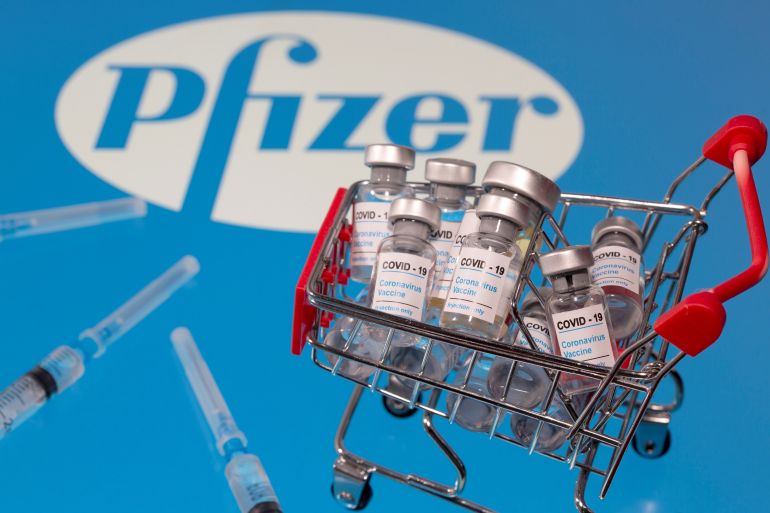Pfizer-BioNTech’s vaccine: What you need to know in 500 words
Key details about the US-German-made vaccine, which has been approved for widespread use in the UK.

The UK has become the first country to approve Pfizer-BioNTech’s COVID-19 vaccine for widespread use.
From Tuesday, it will be available in 70 hospitals across the country. The first person to be vaccinated was 90-year-old Margaret Keenan, in Coventry.
Keep reading
list of 4 itemsPfizer ends COVID-19 vaccine trial with 95% success rate
Pfizer seeks US FDA approval for COVID-19 vaccine’s emergency use
UK approves Pfizer-BioNTech vaccine for use in world first
The development follows trial results made public in mid-November showing the vaccine, produced by US pharmaceutical giant Pfizer and its German partner BioNTech, had a 95-percent success rate and caused no serious side effects.
Based on new messenger RNA (mRNA) technology, the jab was found effective across different age groups and ethnicities, raising hopes it will play a significant role in ending the pandemic.
“It’s the protection of vaccines that will ultimately allow us to reclaim our lives and get the economy moving again,” said Prime Minister Boris Johnson after the approval by the UK’s independent medicines regulator.
However, it is still not known whether the Pfizer-BioNTech shots, estimated to cost about 15 British pounds ($20) per dose, can stop people infected with the novel coronavirus from spreading it to others.
It also remains to be seen how long the vaccine’s effect will last.
The UK, home to about 67 million people, has ordered 40 million doses of the vaccine – enough to inoculate 20 million people, as it is given in two injections, 21 days apart.
There are three routes for transporting the vaccine into the country, a programme officials have warned will be challenging because it needs to be shipped and stored at -70 degrees Celsius (-94F), or below.
Because the vaccine needs to be stored at this level, to begin with people will only be vaccinated at hospitals, rather than in nursing homes.
Care home staff and residents will be first in line to get vaccinated, followed by people older than 80, those deemed to be clinically vulnerable, and other health and social care workers.
The UK, which has celebrated what it dubbed “V-Day”, is battling Europe’s worst outbreak, with more than 1.6 million coronavirus cases and more than 60,000 deaths.
Pfizer has described the UK’s emergency-use authorisation as a historic moment in the fight against the pandemic.
“This authorisation is a goal we have been working toward since we first declared that science will win,” said CEO Albert Bourla.
“We are focused on moving with the same level of urgency to safely supply a high-quality vaccine around the world.”
The authorisation of the Pfizer-BioNTech drug for use could be followed by the approval of other promising vaccines, including those developed by US biotech firm Moderna and UK pharmaceutical company AstraZeneca in collaboration with the University of Oxford.
Moderna’s costs roughly 25 British pounds ($33) per dose and offers a similar protection rate to Pfizer-BioNTech. It can be stored for up to six months at -20 degrees Celcius (-4F), although it is believed to remain stable at normal refrigerator temperatures for up to 30 days.
AstraZeneca-Oxford’s product is cheaper, about 3 British pounds ($4) per dose, and proved to be up to 90-percent effective in trials. It can be stored at refrigerator temperatures, meaning it potentially offers the best option for mass immunisation around the world.